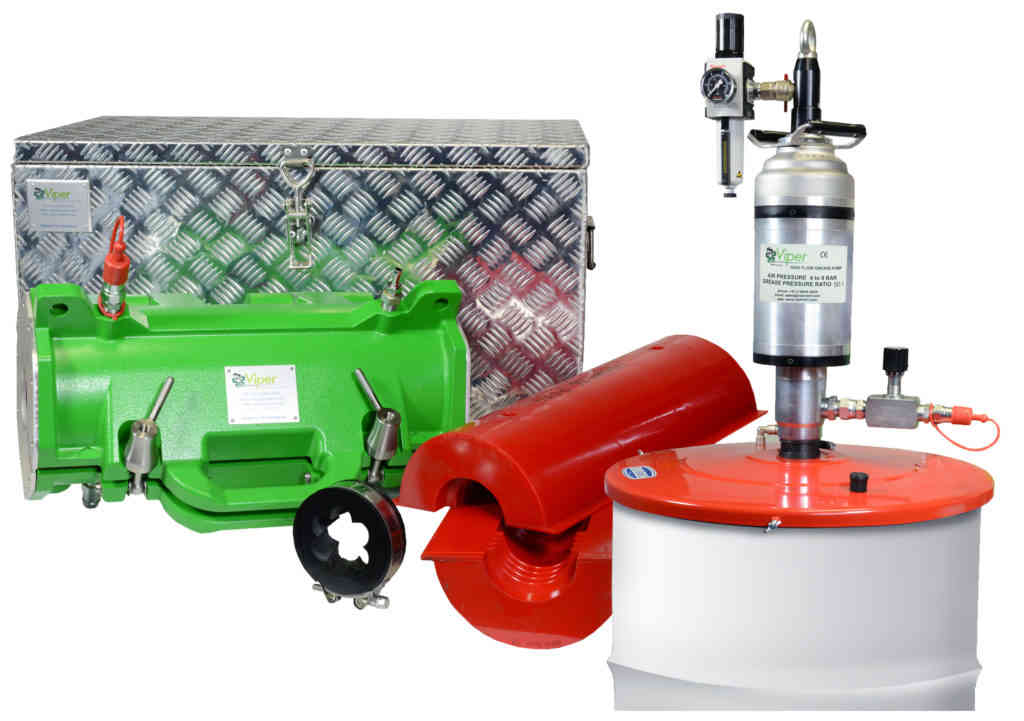Wire ropes are found in many industrial settings. They are used for lifting, dragging, and pulling heavy loads. Wire ropes contain multiple steel strands twisted together. Friction from contacting and rubbing against rough surfaces causes ropes to deteriorate over time. That’s why regular lubrication is so critical. Efficient wire rope lubricators like Viper WRL and lubrication are needed to properly coat ropes, protecting the inner cores from wear and extending service life.
How Do Wire Ropes Work?
Understanding why lubrication is vital starts with knowing how wire ropes function. The rows of steel wires inside the rope bear the load when pulling. Lubrication forms a protective barrier, keeping moisture out and letting the wires slide by each other smoothly when the rope bends. Without enough lubricant, friction creates tiny rust spots. The spots eat away at the steel, weakening it.
Problems Caused by Poor Lubrication
Several serious issues can develop when wire rope lacks adequate lubrication:
Corrosion – When uncoated wires contact water or moisture, rust begins forming. Even small amounts of corrosion structurally weaken the rope over time.
Wear – Friction from dry, unlubricated inner wires rubbing together erodes the steel. Wear shortens the rope’s working life.
Fatigue – Improper lubrication makes bending and flexing more difficult. This leads to metal fatigue and fracturing.
Breakage – Unlubricated or rusted load-bearing wires start snapping. This can cause dangerous rope failure under heavy loads.
Regular lubrication using quality wire rope lubricators is the only way to combat these problems.
Choosing the Right Lubricator
Specialized tools apply lubricant evenly across the inner wires of a rope. Selecting the right wire rope lubricator depends on the rope’s diameter and type:
- Small diameter wire rope is often lubricated using a stiff brush or swab to work lubricant into the center.
- Larger diameter ropes require a lubricator that presses grease under high pressure deep into the core.
- Fast moving ropes like those on cranes need a lighter lubricant that won’t sling off at high speeds.
- Wire ropes used in corrosive environments need lubricants fortified with rust inhibitors.
Consult an expert to make sure you choose efficient lubricators designed for your specific ropes. Using the wrong tools leads to inadequate coverage.
Applying Lubricant Correctly
Proper procedures are key to lubricating wire ropes effectively:
- Clean old lubricant and grit off first using solvents and abrasive pads. This allows new lubricant to adhere directly to wires.
- Apply lubricant across the rope’s entire length and circumference so all wires get coated.
- Use the rope’s movement through the lubricator to work the lubricant into the core as strands flex.
- Check that lubricant appears evenly distributed along the length after application. Target any uncoated areas.
Consistency Is Crucial
Lubricating just once in a while isn’t sufficient to protect wire ropes. Regular reapplication is essential:
- Ropes in rotating service need lubrication as often as daily.
- Ropes under light loads may need lubrication weekly.
- Routinely inspect ropes and reapply lubricant whenever drying or corrosion is visible.
Setting up maintenance schedules keeps ropes coated optimally at all times. Documenting lubrication activities helps ensure consistency.
Proper Lubrication Prolongs Service Life
With heavy use, all wire ropes eventually require replacement. But following a frequent, thorough lubrication program using efficient tools significantly extends usable life:
- Lubrication makes ropes run cooler, preserving the inner steel wires.
- Lubricants displace moisture and prevent corrosion.
- Wear and fatigue happen slower thanks to smoother wire movement.
- Well-lubricated ropes can handle their rated load capacity longer.
By reducing internal wear and tear, good lubrication practices maximize your rope investment over years of use.
Depend on the Experts
Caring properly for industrial wire ropes requires the right equipment, procedures, and expertise. Professional specialty contractors offer full-service rope maintenance programs, including:
- Onsite rope inspections by qualified technicians
- Recommendations for proper lubricator selection
- Scheduled rope lubrication services
- Documentation for compliance reporting
Their guidance ensures your ropes stay safe, reliable, and optimized for maximum longevity through effective lubrication.





